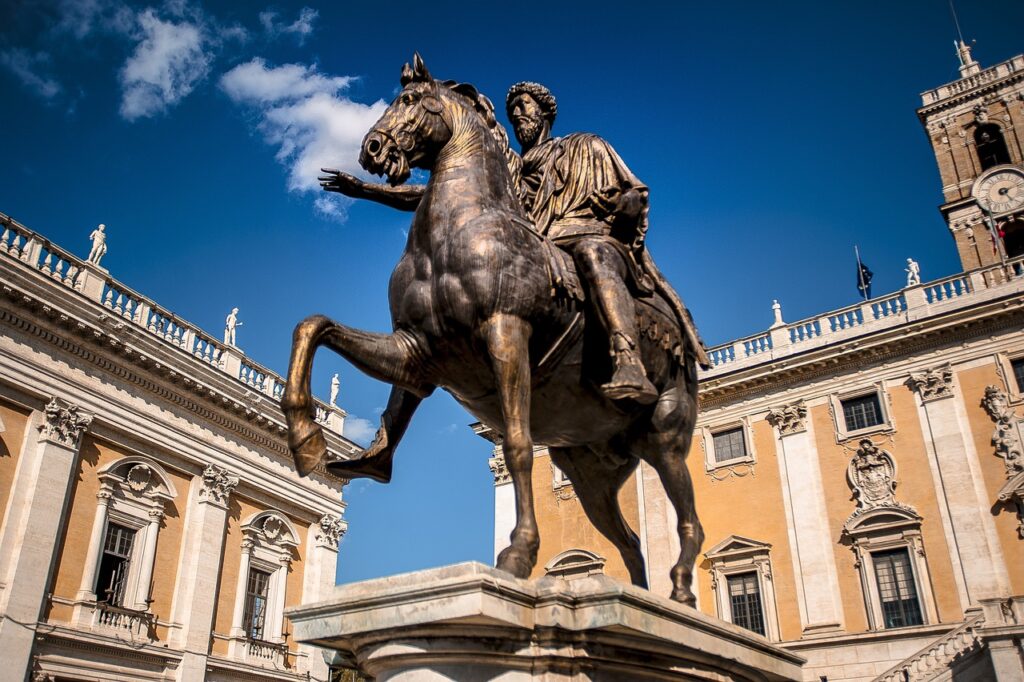“You have power over your mind – not outside events. Realize this, and you will find strength.” Marcus Aurelius
In the fast-paced, high-stakes world of leadership, maintaining a strong inner game is crucial. Leaders often face immense pressures and challenges that require not just critical thinking but also emotional resilience. Stoicism, an ancient Greek philosophy, offers a powerful framework for leaders to develop self-regulation, which can be likened to “self-regulation on steroids.” Here’s how Stoicism can support leaders in building a robust inner game.
Understanding Stoicism
Stoicism, founded by Zeno of Citium in the early 3rd century BC, teaches the development of self-control and fortitude as a means of overcoming destructive emotions. The core tenets of Stoicism revolve around the idea that we cannot control external events, but we can control our responses to them. This philosophy is built on four cardinal virtues:
- Wisdom: The ability to navigate complex situations in a logical, informed, and calm manner.
- Courage: The mental and moral strength to withstand adversity and fear.
- Justice: Treating others with fairness and integrity.
- Temperance: Practicing self-control and moderation in all aspects of life.
How Stoicism Enhances Self-Regulation
- Emotional Resilience
Stoicism teaches that our emotions are a result of our perceptions and judgments. By altering how we perceive and judge events, we can maintain emotional equilibrium. For leaders, this means staying calm and composed in the face of challenges, making it easier to think clearly and make rational decisions. - Focus on What You Can Control
One of the fundamental principles of Stoicism is distinguishing between what we can control and what we cannot. Leaders often encounter situations beyond their control, such as market fluctuations or organizational changes. Stoicism encourages leaders to focus their energy on what they can influence, thereby reducing stress and increasing effectiveness. - Practicing Mindfulness
Stoic practices, such as reflection and meditation, foster mindfulness. By regularly reflecting on their thoughts and actions, leaders can develop greater self-awareness and self-regulation. This practice helps leaders to stay present and make more deliberate choices rather than reacting impulsively. - Building Mental Toughness
Stoicism emphasizes the importance of mental toughness. By regularly facing and enduring challenges, leaders can build resilience. The Stoic practice of voluntary discomfort, such as fasting or cold showers, can help leaders become more comfortable with discomfort and uncertainty.
Common Traits in Stoic Leaders
The article “9 Common Traits in the Lives of Stoic Leaders” on Daily Stoic outlines key characteristics shared by Stoic leaders, which include:
- Sound Judgment: Assessing the true value of things.
- Preparation: Anticipating and planning for all outcomes.
- Ingenuity: Problem-solving and adaptability.
- Self-Discipline: Being strict with oneself, lenient with others.
- Modesty: Simplicity in lifestyle and speech.
- Listening: Valuing silence over speech.
- Kindness: Just and fair dealings with others.
- Courage: Acting for the common good.
- Character Focus: Prioritizing moral integrity and actions for the greater good.
Stoicism in Leadership: Practical Applications
- Daily Reflection
Leaders can benefit from daily reflection, a key Stoic practice. Reflecting on the day’s events and their responses to them can help leaders gain insights into their behavior and make improvements. - Negative Visualization
Negative visualization involves contemplating potential challenges or negative outcomes. This practice can prepare leaders for adversity, making them less likely to be caught off guard and more capable of handling unexpected events. - Journaling
Keeping a journal is a powerful tool for self-reflection and self-regulation. Leaders can use journaling to record their thoughts, emotions, and experiences, which can provide valuable insights and promote personal growth. - Practicing Gratitude
Gratitude is a key component of Stoicism. By regularly acknowledging and appreciating what they have, leaders can cultivate a positive mindset and reduce feelings of dissatisfaction or entitlement.
Conclusion
Stoicism offers leaders a comprehensive toolkit for strengthening their inner game. By embracing Stoic principles and practices, leaders can develop unparalleled self-regulation, emotional resilience, and mental toughness. In a world where the ability to stay composed and make rational decisions is paramount, Stoicism stands out as a timeless philosophy that can help leaders navigate the complexities of their roles with grace and effectiveness.
Upcoming Sage & Summit Leadership Events:
Get on the Waiting list – all have limited numbers
Coaching Style of Leadership – October 9th for online and in-person
Restore and Refresh – Executive Retreat – Mid-October
Engineers in Leadership Mastermind – Fall Startup
Quarterly People Centered Leadership Workshop Series: Giving Effective Feedback – September 27th

